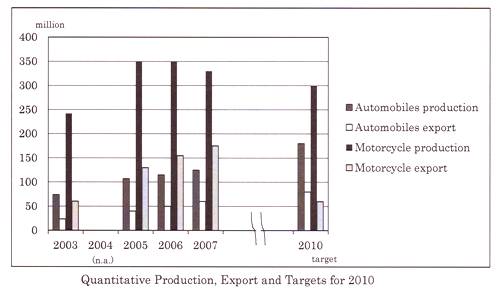Tokyo Tech News
Tokyo Tech News
Published: November 30, 2011
The Thai automotive industry has grown rapidly. Aspects of the industry such as automotive spare parts are experiencing strengthened competition. As a result Thai domestic automotive parts companies need to improve their level of technology effectively in accordance with the demands of assemblers.
Saiki and her colleagues conducted a questionnaire and interview survey relating to technology management in domestic and foreign (Japanese) companies in Thailand. They analysed the factors affecting the growth rate of sales.
The researchers found that small- and medium-sized companies like Thai automotive parts companies need to use rather high-level quality-management techniques. It was also necessary to adopt several proprietary technologies including computer-aided manufacturing (CAM), computer-aided design (CAD) and computerized numerical control machines (CNC), as well as some management technologies to decrease the in-house defect rate. As to human-resource management, higher retention rates seem to result in the establishment of a high sales growth.
Many domestic companies are small- or medium-sized with fewer human resources. However, it seems not only improvement in the level of technology but also the enhancement of employee support is required to raise product quality.

Quantitative production, export and targets for 2010.
Reference
Tomoko Saiki
Center for Public Information
Professor Emeritus